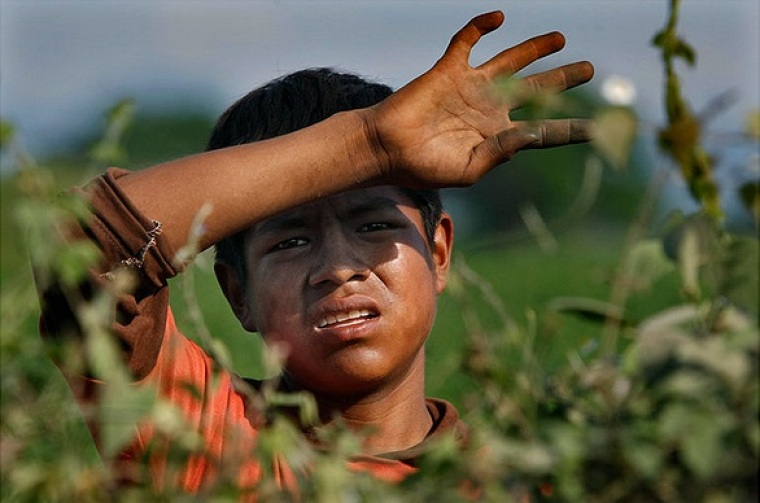Presbyterians take aim at slavery conditions in farmfields

LOUISVILLE, Kentucky (Christian Examiner) – The life expectancy of farmworkers is the shortest of any occupation in the United States, according to statistics compiled by Andrew Kang Bartlett, an associate with the Presbyterian Hunger Program.
The work is backbreaking and dangerous: laboring in fields under a hot sun without ready access to fresh water, working with and on equipment without training, being exposed to fertilizer chemicals; and for women, the 80 percent probability that they will be sexually assaulted while working in a field.
The average annual income for farmworkers is $12,000, well under the poverty level for an individual, and many farmworkers have families, Bartlett added.
Farmworkers labor across the nation, planting, weeding and picking in due season, all manner of garden vegetables and fruits, as well as other crops such as tobacco, sugar cane and even, in Louisiana, crawfish.
The Presbyterian Church USA, involved in hunger ministries since the 1970s through its Presbyterian Hunger Program, connected in 2003 with the Coalition of Immokalee Workers (CIW), a human rights organization founded in 1993, which now counts 4,500 farmworker members.
The name "Immokalee" comes from the town that is at the center of the $600 million tomato industry in southern Florida.
"Farmworkers are not paid by the hour, but by the piece, which means they have to work longer and harder to meet minimum wage," Bartlett said in a Dec. 10 news release from PCUSA News Service. "For years, farmworkers have faced physical and sexual abuse, extremely low wages and poor living conditions," the article continues.
In 2011, CIW launched the Fair Food Program, which encourages large retailers – fast food restaurants; supermarkets – to pay one cent more per pound of tomatoes picked. If every commercial purchaser did so, it would double farmworkers' salaries, according to the International Labor Organization. The Fair Food Program also calls for people to boycott purchases from farms that violate human rights.
"The PCUSA through the Presbyterian Hunger Program has helped facilitate negotiations between corporations and the farmworkers themselves," Bartlett said. "We've been part of the farmworker-led strategy of mobilizing people to bring greater attention to the realities of farm work and realities of modern-day slavery in the U.S., and respond to whatever requests of support we get from the CIW."
A dozen major food-related corporations have chosen to support the Fair Food Program: McDonald's, Yum! Brands, Burger King, Walmart, Whole Foods, Trader Joe's, Chipotle, Aramark, Compass Group, Bon Appetit, Sodexo and Subway.
Their participation is helping more than 30,000 farmworkers in Florida.
Last May, PCUSA leaders joined with other religious leaders across the nation to call on Wendy's fast food restaurant to work with CIW in the Fair Food Program. In a letter to Wendy's CEO, Emil Brolick, delivered at the company's annual shareholders' meeting, the group urged Wendy's to "consider the bigger picture in food purchases.
"The gains the CIW has achieved to bring safety, better pay, freedom from sexual abuse and dignity to the fields where our brothers and sisters harvest our food, will only be permanent when all buyers agree to the standards of the Fair Food Program."
Linda Valentine, executive director of the Presbyterian Mission Agency, which includes the Presbyterian Hunger Program, expressed the denomination's ongoing support for the farmworkers organization.
"The CIW has created an inspiring model that brings together farmworkers, growers, corporations and consumers in common purpose to ensure human freedom and dignity," Valentine said, according to the news release. "The PCUSA will continue to stand with farmworkers and workers throughout the food chain until the day when all are afforded the rights and fairness they deserve."